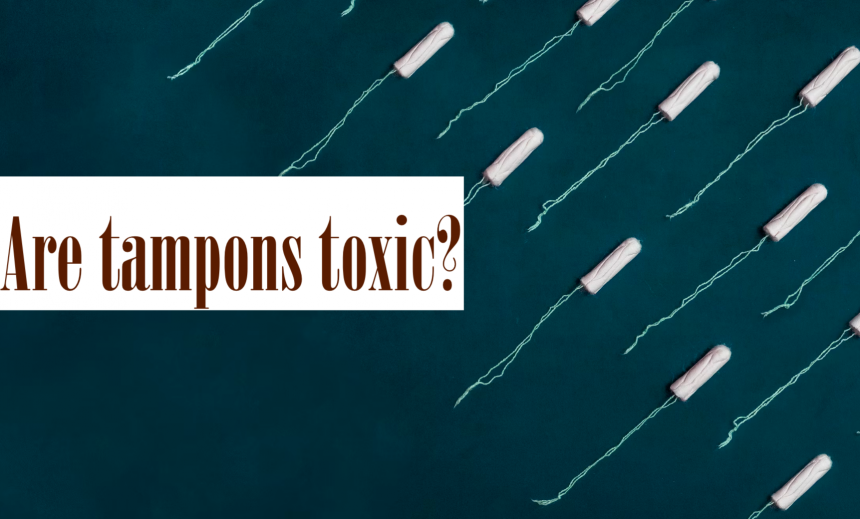
Are your tampons toxic? Trace amounts of lead found in women’s menstruation tampons.
Like the microplastics found in plastic teeth aligners, recent research on tampons has uncovered hidden dangers of arsenic and lead. The study, published in the journal Environment International, revealed that small amounts of toxic metals were present in all tested tampons.
The research, conducted by teams from Columbia, Berkeley, and Michigan State universities, involved breaking down and analyzing tampons for the presence of these toxic metals.
According to the researchers, “Tampon use is a potential source of metal exposure,” and they emphasized the need for further research to determine the effects of these metals leaching into the body through vaginal absorption.
While the levels of lead and arsenic found in tampons were below toxic thresholds, it raises concerns about the origins of these metals, which likely come from the soil where cotton and trees used in tampon production are grown.

Mooncup is a good alternative to tampons but we can’t give information about plastics and your health.
Organic cotton pads and alternative menstrual cups like the Mooncup could be safer choices. It’s important to be cautious of potential exposure to plastics in these alternatives.
To address the concerns raised by the study, here are five eco-friendly, organic tampon brands:
- Natracare – Offers certified organic cotton tampons free from synthetic materials, dyes, and perfumes.
- Seventh Generation – Known for its organic cotton tampons that are free from chlorine bleaching and fragrances.
- Organyc – Provides 100% organic cotton tampons that are hypoallergenic and biodegradable.
- Cora – Features organic cotton tampons with a focus on sustainability.
- L. – Delivers organic cotton tampons with a commitment to ethical production practices.
Do you have any recommendations for eco-friendly tampon brands or practices?
Comments






